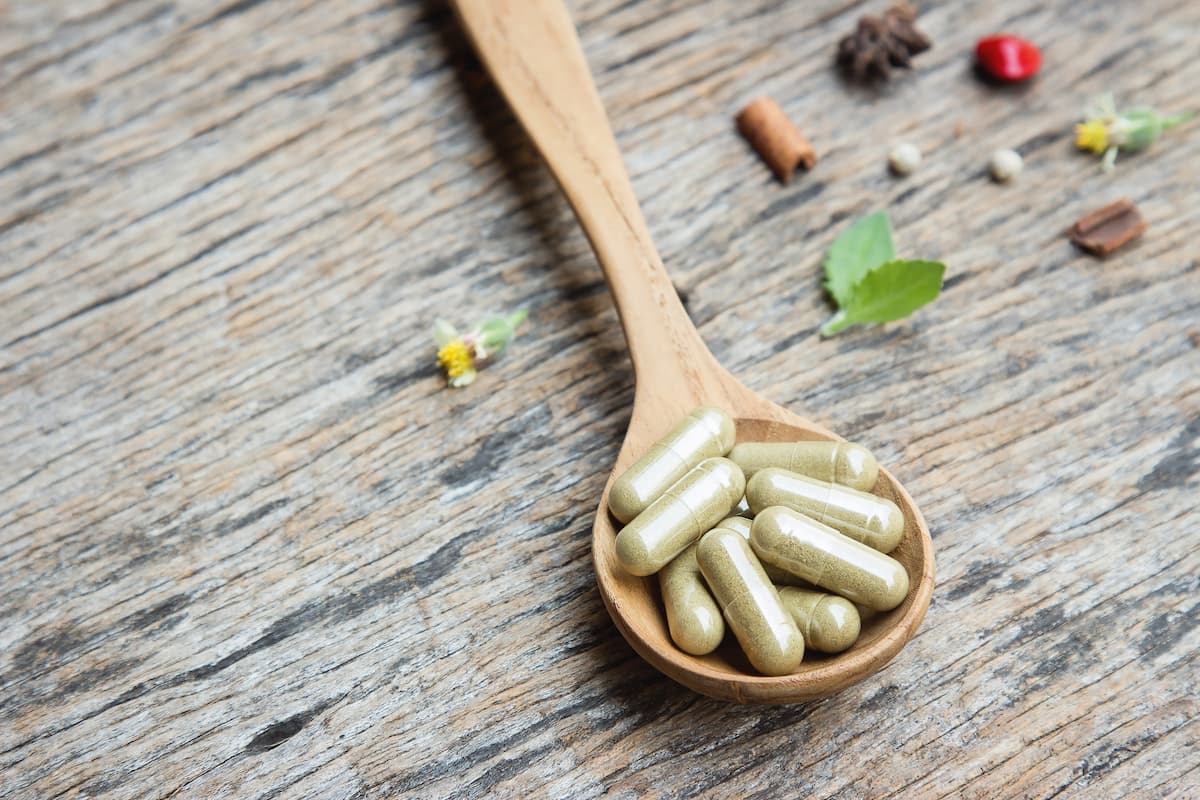Maca root properties, side effects, benefits, and dosage
Maca root can support sexual function and improve mood.


Learn more about our editorial process
.

Learn more about our editorial process
.

Learn more about our editorial process
.

Learn more about our editorial process
.
Why you can trust us
Articles on Natu.Care are written based on scientific research, data from government websites and other reliable sources. The texts are written in cooperation with doctors, nutritionists and other health and beauty experts. Articles are reviewed before publication and during significant updates.
.Learn more about our editorial process
.Information about advertisements
Content on Natu.Care may contain links to products from the sale of which we may receive a commission. When creating content, we adhere to high editorial standards and take care to be objective about the products discussed. The presence of affiliate links is not dictated by our partners, and we select the products we review ourselves completely independently.
.Learn more about our terms and Conditions
.Legend says that in Inca culture it was considered a gift from God. And today it is a common supplement - but with unusual properties. Some mention memory enhancement, some mention libido support, and some mention that it... doesn't work at all.
What is the truth? Together with clinical nutritionist, Julia Skrajda we will give you the most important information about maca root.
From this article you will learn:
.- What composition maca root has and what types of maca root there are. .
- What are the properties of maca and what it can help with. .
- Who should use it and how. .
- What are the contraindications and side effects of taking matzoh. .
See also:
What is maca root?
.
Maca root, also known as Lepidium Meyenii, is a type of plant native to Peru. It is cultivated in the Andes and has been used in folk medicine for centuries. Due to its health benefits, maca root is often referred to as the 'Peruvian ginseng'and.
Maca is rich in nutrients such as proteins, fats, fibre, vitamins (B1, B2, C and E), and minerals (calcium, potassium, iron, copper, zinc, manganese)and.
.
What is the composition of maca root?
.
Maca root, also known as Peruvian ginseng, is an organic superfood with an extremely rich composition. It offers a broad spectrum of vitamins, minerals, amino acids and other important nutrients that contribute to health and vitality.
- Vitamins. Maca root is rich in a variety of vitamins, such as vitamin C, B2, B6, and also contains not inconsiderable amounts of vitamin E. These work together to support the immune system, metabolic processes and improve skin healthand.
- Minerals. Maca root provides important minerals such as calcium, potassium, iron, magnesium, zinc and copper. These help maintain bone health, proper muscle function, and further benefit the nervous systemand. .
- Amino acids. Like most superfoods, maca is rich in amino acids - components of protein that are essential for cell building and muscle regeneration .
- Proteins. Maca provides proteins that perform key functions in the body, influencing cell function, enzymes, antibodies and hormonesand. .
- Fibre. Maca root contains dietary fibre, which aids digestion, helps keep blood glucose levels stable, and contributes to a feeling of satietyand. .
What are the types of maca root?
.
Maca root comes in three main types that differ in colour - black, red and yellow. Each variety has its own unique properties and nutrients that affect health in different ways.
.
Red maca is also known for its antioxidant properties.
|
Type . |
What are the characteristics of and |
|
Black maca . |
Known for its properties related to improving cognitive abilities such as memory and concentration. It also enhances physical performance and is often recommended for athletes. In men, it can improve fertility and libido. |
|
Red maca . |
Red maca is particularly valued for its antioxidant and anti-cancer properties. It supports bone and prostate health. For women, on the other hand, it can help alleviate the symptoms of menopause and premenstrual syndrome (PMS). |
|
Yellow maca |
This is the most popular and accessible type of matcha. It is believed to increase energy levels and improve mood. It can also support hormonal balance in both men and women. |
Maca root - properties and effects
.
Maca root became famous thousands of years ago for its health-promoting properties. Some time has passed, but its effects have remained the same. According to some studies, it can improve memory, increase stamina, and support libido. How exactly does maca root work?
.
Improves memory
.
Maca root has properties that may contribute to improving cognitive abilities, particularly memory and learning skills. This action is due to the presence of certain physiologically active compounds that affect the structure and function of the brainand.
Studies in animal models have shown that maca supplementation helps improve spatial memory and learning ability. Additionally, some of these studies suggest that maca may have a neuroprotective effect, meaning that it is able to protect neurons in the brain from damage and loss of functionand.
.
It should be noted, however, that most of the scientific work on matzoh and cognitive abilities has been carried out on animals. Technically, therefore, there are not yet enough studies in humans to confirm these effects. Therefore, further research preferably involving humans is needed to assess the true benefits of matzah on cognitive abilities.
Promotes sexual function
.
Maca root has a centuries-long history of use as a natural aphrodisiac that increases libido and improves sexual function in both men and women. Some studies suggest that maca may stimulate the production of the hormones oestrogen and testosterone, which play key roles in sexual health. Additionally, minerals such as zinc and iodine support sexual function by affecting hormone balance and improving circulationand.
A 2020 study tested the effects of maca root powder on men with asthenozoospermia (abnormal sperm motility in semen) and oligozoospermia (a disorder of the male reproductive system). For 12 weeks, a group of 69 men took 2 grams of maca root daily or a placebo. The group that supplemented with maca showed a significant improvement in semen concentration compared to patients taking placebo. However, I point out that sperm motility remained the same in both groupsand.
On the other hand, a 2015 study on a group of 45 female patients examined the effect of maca root on the treatment of sexual dysfunction induced by antidepressants. The research paper involved a 12-week study, during which the participants received 3 g of maca root daily. Remission rates of discomfort at the end of treatment were higher in the maca group than in the placebo group, and the supplement was well toleratedand.
Reduces menopausal symptoms
.
Maca root is also prized for its potential properties to alleviate menopausal symptoms. During this period, women experience a natural decline in estrogen levels (estradiol, estrone, estriol), which can lead to a number of unpleasant symptoms. These symptoms can include hot flashes, sleep disturbances, mood changes, vaginal dryness and an increased risk of osteoporosisand.
Using maca can help balance hormone levels and reduce these symptoms. Numerous studies suggest that maca may work on a woman's endocrine system by affecting the pituitary gland and hypothalamus - two areas of the brain that regulate hormone balanceand.
.
As a result, maca root can counteract the effects of low estrogen levels, thereby helping to alleviate menopausal symptoms.
.
Improves mood
.
Maca root has potential mood-enhancing properties. It contains certain compounds, such as flavonoids, which are associated with improved mood, as well as reduced anxiety and depression. Human studies have shown that consuming maca can help reduce symptoms of depression and improve emotional stateand.
Additionally, maca helps to stabilise hormonal balance, which affects various aspects of mental health, including stress levels, anxiety and overall wellbeing .
.
Study
.A 2016 study suggests, that daily supplementation with 3g of maca root extract for 12 weeks can positively affect mood and energy. It is worth noting, that the people in the study took red and black maca, but the results were better with the red oneand.
Increases stamina
.
Maca root is valued by athletes and physically active people for its endurance and performance-enhancing properties. A study suggests that regular consumption of matcha can improve athletic performance, which is very useful for both professional and amateurand.
A study lasting 14 days tested the effects of maca root on cyclists. Athletes taking the supplement had better performance over 40 kilometres .
Maca may contribute to improved endurance due to its adaptogenic properties, meaning that it helps the body adapt to stress, including the physical stress caused by intense exercise .
.
Additionally, maca contains natural compounds that increase energy and vitality, which also translates into improved endurance. This means that consuming maca can not only help during prolonged exercise, but can also contribute to faster recovery after trainingand.
How else does maca root workand?
.
- .
- Helps the immune system. The compounds in maca, such as vitamins and amino acids, may contribute to improved immune system function, helping the body fight off infection and disease.
- Acts as a antioxidant. Maca root contains antioxidants that help fight free radicals in the body, which contributes to overall health.
- Promotes skin health. Some studies suggest that maca root may improve skin health, especially in people with acne and other skin conditions.
- Helps fight anaemia. Maca root is rich in iron, which helps prevent, among other things, anemia. .
Note
Remember, that most of the research on maca root has been conducted on animals. Scientific papers that confirm its efficacy on humans are residual. Therefore, take this into account when possibly supplementing with this plant.
Who should consider using maca root?
.
Maca root is a natural dietary supplement unheard of among the healthy lifestyle trend. It is known for its multifaceted health benefits, so different groups of people should consider using it. Who in particularand?
- People looking for a natural energy boost. Maca is rich in natural bioactive compounds that can support energy levels and stamina. Regular use of this supplement can therefore help improve overall physical performance. .
- Women going through menopause. Maca can help alleviate various symptoms of menopause, such as hot flashes, fatigue and concentration problems. It is a natural support during hormone replacement therapy.
- People with fertility problems. Research suggests that maca may support fertility in both men and women. It can increase sperm count and improve sperm motility, and in women it can help balance hormones.
How to use maca root
.
Maca root is usually available in powder form, which can be added to a variety of foods and drinks. The recommended daily dose is between 1.5 and 3 grams, but it is a good idea to start with lower portions (as low as 500 mg) and then gradually increase them. You can add maca powder to smoothies, oatmeal, yoghurt or teaand.
.
In what forms is maca root found?
.
Maca root is a versatile supplement that can be found in many forms. Each has its own unique characteristics that allow it to be used in a variety of situations.
- Maca powder. The most popular form of maca root, which is easy to consume and offers many uses. You can sprinkle it into smoothies, oatmeal, desserts or drinks, allowing you to add nutritional value to your daily diet.
- Maca capsules. These are ideal for those who prefer simplicity and convenience. Besides, the capsules give uniform doses, making it easy to control intake.
- Pure maca root. For those who prefer to stay as close to nature as possible, fresh maca root is an excellent choice. It can be eaten raw, added to salads or cooked like a regular vegetable. .
When choosing supplements, bet on maca root extract - it is a concentrated form of supplement that contains a high dose of active ingredients. It can be consumed on its own or added to beverages.
When will the effects of maca root appear?
.
The first effects of maca root may depend on a variety of factors, such as individual body response, dosage, form of supplement and purpose of use. Some people may notice an improvement in mood, energy, sexual performance and general well-being after a few days of use, while others may need several or more weeks of regular use.
What not to combine maca root with?
.
Although maca root is usually safe for most people to consume, combining it with certain substances can be dangerous. There are certain interactions that can affect the effectiveness of maca or cause unwanted side effects. What not to combine it with?
Maca may affect blood clotting.
|
Substance . |
Why not to combine?and |
|
|
Hormonal medicines . |
Maca root has natural properties that affect hormone levels, which can interfere with hormonal medications. This applies to hormonal contraception, hormone replacement therapy or anti-cancer drugs. |
Hormone suppression. |
|
Thyroid medications |
Maca root is rich in iodine, which may affect the effects of medications on thyroid gland. Those suffering from problems with this organ should consult a doctor before starting maca supplementation. |
|
|
Preparations for anticoagulants . |
Maca can theoretically affect blood clotting. Although the scientific evidence is inconclusive, people taking anticoagulants should approach supplementation with this root with caution. |
|
|
Alcohol |
Although maca and alcohol do not have direct interactions, consumption of large amounts of alcoholic beverages may exacerbate potential maca side effects. Therefore, moderation of alcohol consumption during supplementation is recommended. |
Where to buy maca root?
.
You can find maca root in many places, both online and physically. You can find various forms of this product - in powder, capsule or tablet form - at online retailers such as Amazon, eBay or Allegro. It is also often available on the websites of shops specialising in dietary supplements.
If you prefer stationary shopping, it is not uncommon for maca root to also be available in natural and organic product shops or pharmacies. Some supermarkets may also offer this type of product in their health food sections.
Maca root is also available.
Maca root - dosage
.
The dosage of maca root depends on the manufacturer's recommendations. Nevertheless, most studies use doses of 1.5-3 grams. These portions are most often safe and do not cause unwanted side effects. Therefore, remember to always follow the manufacturer's, pharmacist's or doctor's guidelines, and exercise moderation in maca supplementationand.
What are the contraindications to using maca root?
.
Although maca root is generally considered safe for most people, some people should not use it. This may be due to existing health conditions or interactions with other medications.
Contraindications to the use of maca rootand:
.
- .
- Problems with thyroid. Maca root is rich in iodine, which can affect thyroid function. Therefore, people with diseases of this organ should exercise caution, as maca supplementation may interfere with treatment. .
- Hormonal health. Maca can affect the body's hormonal balance, which can be problematic for those with certain hormonal issues. For example, women with hormone-dependent breast cancer should exercise caution.
- Pregnancy and breastfeeding. Although maca is often used to improve fertility, there is a lack of research on its safety during pregnancy. Similarly, there is insufficient evidence that maca supplementation is safe during breastfeeding. .
Remember that it is always a good idea to consult your doctor before starting any supplementation, especially if you have any pre-existing health problems or are taking medication.
Can maca cause side effects?
.
Yes, maca root can cause side effects, but these are usually mild and rare. The most commonly reported side effects are gastrointestinal disorders such as bloating, gas, abdominal pain or nausea. These are usually caused by consuming too much maca root or starting supplementation without gradually getting the body used to the ingredientand.
Some people may also experience mood changes, anxiety or an accelerated heartbeat, which can be linked to the effects of matcha on hormonal balance. There are also reports of insomnia associated with the use of this root, especially when consumed late in the evening. People who already have thyroid problems may also notice a deterioration of this organ due to the high iodine content of maca rootand.
It is important to remember that the side effects of maca supplementation can vary from person to person. Therefore, it is always a good idea to consult your doctor or nutritionist before starting maca root supplementation, especially if you have any existing health issues.
Expert reviews of maca root
.
Maca is definitely a superfood that has a good amount of nutrients and is a beneficial addition to the diet. I would recommend it to menopausal women (who are not taking any medication) to reduce the unpleasant symptoms of menopause. In addition, men who are trying to have a baby will also benefit from maca root, as studies relating to sperm motility and overall spermatogenesis are really promising..
 .
.
Julia SkrajdaDietitian
.Maca root cannot be overestimated, however. Human studies are still scarce and interactions with selected medications and disease entities can be dangerous. Therefore, if you belong to one of these groups, supplement with maca only under the supervision of a specialist, adds dietitian.
Because of its effect of stimulating circulation in the genital area, maca is considered an aphrodisiac. However, patients with prostatic hypertrophy should be cautious. This strong stimulation of circulation can cause pain. In addition, the phytosterols in this root have estrogenic activity, which is used to relieve menopausal symptoms..
 .
.
Ilona Krzak Master of Pharmacy
.
Maca root maca root - user reviews
.
I have been taking maca for a fortnight now and it seems to really work. My energy has skyrocketed..
Tomasz37 years old
It just doesn't work. I haven't noticed a difference in energy or concentration..
Eva25 years old
I purchased matcha as a supplement to my morning smoothies. It has helped to improve my energy levels. Just like they said - it works like a little black..
Piotr50 years old
After using matzah for a few days, my stomach problems got worse. I could not eat anything without feeling discomfort. This is a pity, as I was hoping for an improvement in my condition..
Jacek36 years old
As a middle-aged woman struggling with hot flashes, maca has proved to be a salvation for me. The hot flashes ended and my mood improved..
Anna48 years old
I tried maca while looking for a natural way to improve libido and I am amazed at the effects I noticed after just 3 weeks. I recommend giving it a try!.
Krzysztof39 years old
See also:
- Cordyceps
- Macrocephalus
- Caffeine
- Ashwagandha - when it starts to work
- Berberine - contraindications
- When to take ashwagandha
- Berberine - side effects
- Indian ginseng
Summary
.
- Maca root, known as Peruvian ginseng, has a wide range of uses in natural medicine.
- It is rich in protein, fibre, various vitamins (C, B2, B6, E), minerals (calcium, potassium, iron, magnesium, zinc, copper) and amino acids.
- It is also rich in vitamins and minerals.
- It comes in three types - black, red and yellow - each with unique properties and nutrients. .
- Maca root has many positive properties, including improving cognition, supporting sexual function, alleviating menopausal symptoms, supporting mood and increasing stamina.
- Maca root should not be combined with hormonal medications, thyroid medications, anticoagulants and alcohol. .
- The dosage of maca root depends on the manufacturer's recommendations, but is usually between 1.5 and 3 grams per day. .
- Although maca root is generally considered safe, some people should not use it, such as people with thyroid problems or women who are pregnant or breastfeeding.
- Potential side effects with maca root use include gastrointestinal disorders, mood changes, racing heartbeat and insomnia.
FAQ
Is maca root safe for everyone?
.Maca root is generally considered safe for most people. Nevertheless, there are certain groups of people who should take special care. These include people with thyroid problems due to the high content of iodine in maca root, people with hormone-related diseases such as hormone-dependent breast cancer, and women who are pregnant or breastfeeding.
Can maca supplementation affect the medications I am already taking?
.Yes, maca root can affect the effects of certain medications. This is especially true for hormonal agents (including contraception), thyroid preparations and anticoagulants. Therefore, it is always advisable to consult your doctor or pharmacist before starting supplements, especially if you regularly take any medication.
Can maca root help with weight loss?
.To date, there is no conclusive scientific evidence on the direct effects of maca root on weight loss. However, the dietary fibre it contains may help to increase feelings of satiety, which may help to control appetite and aid weight loss.
Can maca help improve mood?
.Yes, studies have shown that maca root has mood-enhancing properties. It contains compounds, such as flavonoids, which can improve mood and reduce anxiety and depression. Additionally, maca helps to stabilise hormonal balance, which is key to maintaining a good mood.
What are the possible side effects of maca supplementation?
.Although maca root is generally safe, some people may experience side effects. The most common are gastrointestinal disorders such as bloating, gas, abdominal pain or nausea. Some people may also experience mood changes, anxiety, racing heartbeat or insomnia.
How long will it take before I see the effects of maca root supplementation?
.The first effects of maca root supplementation may depend on the individual's body response, dose, form of supplement and purpose of use. Some people may notice a difference after a few days, while others may need several weeks of regular supplementation.
Can maca root be added to meals?
.Yes, maca root is most often sold as a powder that can be added to a variety of foods and beverages. It can be added to smoothies, oatmeal, yoghurt and even tea. It is an easy and convenient way to enrich your diet with this valuable supplement.
.
Sources
.See all
.Am, A., & J, R. (2020). Does Lepidium meyenii (Maca) improve seminal quality? Andrology, 52(10). https://doi.org/10.1111/and.13755
Beharry, S., & Heinrich, M. (2018). Is the hype around the reproductive health claims of maca (Lepidium meyenii Walp.) justified? Journal of Ethnopharmacology, 211, 126-170. https://doi.org/10.1016/j.jep.2017.08.003
Bizinelli, D., Flores Navarro, F., & Lima Costa Faldoni, F. (2022). Maca Root (Lepidium meyenii) Extract Increases the Expression of MMP-1 and Stimulates Migration of Triple-Negative Breast Cancer Cells. Nutrition and Cancer, 74(1), 346-356. https://doi.org/10.1080/01635581.2021.1882511
da Silva Leitão Peres, N., Cabrera Parra Bortoluzzi, L., Medeiros Marques, L. L., Formigoni, M., Fuchs, R. H. B., Droval, A. A., & Reitz Cardoso, F. A. (2020). Medicinal effects of Peruvian maca (Lepidium meyenii): A review. Food & Function, 11(1), 83-92. https://doi.org/10.1039/c9fo02732g
.Dording, C. M., Schettler, P. J., Dalton, E. D., Parkin, S. R., Walker, R. S. W., Fehling, K. B., Fava, M., & Mischoulon, D. (2015). A Double-Blind Placebo-Controlled Trial of Maca Root as Treatment for Antidepressant-Induced Sexual Dysfunction in Women. Evidence-Based Complementary and Alternative Medicine : eCAM, 2015. https://doi.org/10.1155/2015/949036
Gonzales, G. F. (2012). Ethnobiology and Ethnopharmacology of Lepidium meyenii (Maca), a Plant from the Peruvian Highlands. Evidence-based Complementary and Alternative Medicine : eCAM, 2012, 193496. https://doi.org/10.1155/2012/193496
Gonzales, G. F., Córdova, A., Vega, K., Chung, A., Villena, A., Góñez, C., & Castillo, S. (2002). Effect of Lepidium meyenii (MACA) on sexual desire and its absent relationship with serum testosterone levels in adult healthy men. Andrology, 34(6), 367-372. https://doi.org/10.1046/j.1439-0272.2002.00519.x
Gonzales-Arimborgo, C., Yupanqui, I., Montero, E., Alarcón-Yaquetto, D. E., Zevallos-Concha, A., Caballero, L., Gasco, M., Zhao, J., Khan, I. A., & Gonzales, G. F. (2016). Acceptability, Safety, and Efficacy of Oral Administration of Extracts of Black or Red Maca (Lepidium meyenii) in Adult Human Subjects: A Randomized, Double-Blind, Placebo-Controlled Study. Pharmaceuticals (Basel, Switzerland), 9(3), 49. https://doi.org/10.3390/ph9030049
Honma A., Fujiwara Y., Takei S., & Kino T. (2022). The improvement of daily fatigue in women following the intake of maca (Lepidium meyenii) extract containing benzyl glucosinolate. Functional Foods in Health and Disease, 12(4), 175. https://doi.org/10.31989/ffhd.v12i4.912
Jivad, N., & Rabiei, Z. (2014). A review study on medicinal plants used in the treatment of learning and memory impairments. Asian Pacific Journal of Tropical Biomedicine, 4(10), 780-789. https://doi.org/10.12980/APJTB.4.2014APJTB-2014-0412
Johnson, A., Roberts, L., & Elkins, G. (2019). Complementary and Alternative Medicine for Menopause. Journal of Evidence-based Integrative Medicine, 24, 2515690X19829380. https://doi.org/10.1177/2515690X19829380
Shin, B.-C., Lee, M. S., Yang, E. J., Lim, H.-S., & Ernst, E. (2010). Maca (L. meyenii) for improving sexual function: A systematic review. BMC Complementary and Alternative Medicine, 10, 44. https://doi.org/10.1186/1472-6882-10-44
Stone, M., Ibarra, A., Roller, M., Zangara, A., & Stevenson, E. (2009). A pilot investigation into the effect of maca supplementation on physical activity and sexual desire in athletes. Journal of Ethnopharmacology, 126(3), 574-576. https://doi.org/10.1016/j.jep.2009.09.012
Wang, S., & Zhu, F. (2019). Chemical composition and health effects of maca (Lepidium meyenii). Food Chemistry, 288, 422-443. https://doi.org/10.1016/j.foodchem.2019.02.071
Zhang, Y., Zhou, F., & Ge, F. (2019). Effects of combined extracts of Lepidium meyenii and Allium tuberosum Rottl. On erectile dysfunction. BMC Complementary and Alternative Medicine, 19(1), 135. https://doi.org/10.1186/s12906-019-2542-4
Zhu, H., Xu, W., Wang, N., Jiang, W., Cheng, Y., Guo, Y., Yao, W., Hu, B., Du, P., & Qian, H. (2021). Anti-fatigue effect of Lepidium meyenii Walp. (Maca) on preventing mitochondria-mediated muscle damage and oxidative stress in vivo and vitro. Food & Function, 12(7), 3132-3141. https://doi.org/10.1039/d1fo00383f
.
Editorials
Meet the team



Ashwagandha affects thyroid hormone levels. Find out if you can use it.

See how mountain pintail can affect your wellbeing.

Check out the opinions of doctors and other professionals about ashwagandha. Also find out what people on the forum think about it.
